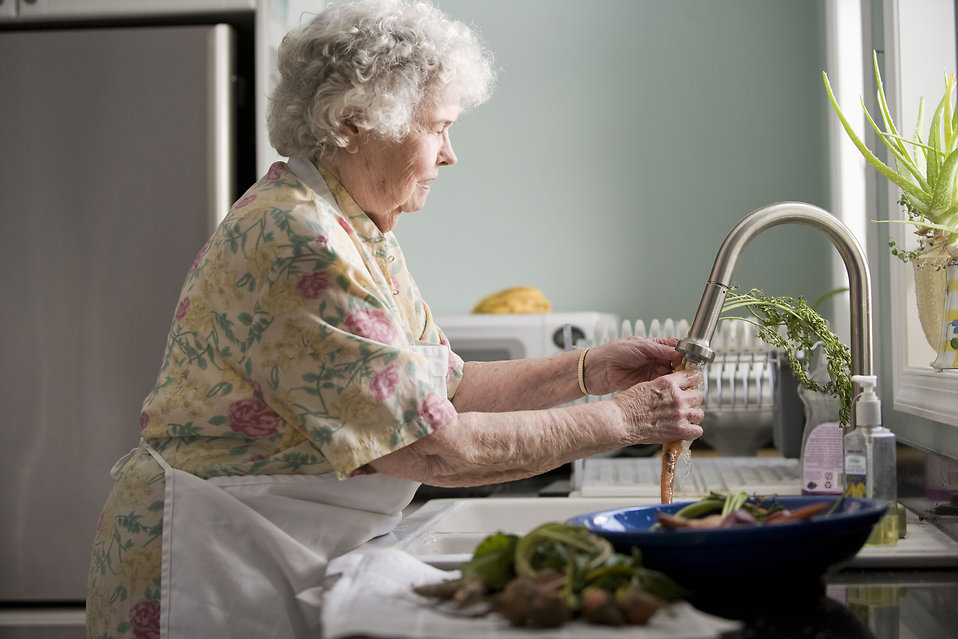It’s not exactly a pleasant thought, but one day your parent’s won’t be able to live independently. It’s an inconvenient truth that as we age our bodies start to deteriorate. Many of us will reach a point where we can’t drive, ascend stairs or do even simpler things like bathe ourselves. Noticing the more serious signs of aging in your parents can be a very painful experience. However, the really important thing is to stay proactive, and make sure the future pans out in a way that’s best for them. Here’s a brief guide to caring for your parents when they reach their senior years.
Image: Pexels
The first, yet perhaps one of the hardest parts of caring for a senior parent is telling them that they need extra care. When you’ve been an independent adult for so many years, and someone younger than you tells you that you need looking after, it can be pretty hard to swallow. Even when their health is deteriorating rapidly, some people will do whatever they can to maintain their independence. Bringing the whole subject up to your parent requires a little delicacy. Don’t call or email them, or try to bring it up in passing when you’re out somewhere. If there’s anything that could up the stress levels, then it’s not the right time or place. The best thing to do is to plan a meeting with your parent and siblings if you have any. Consider all the financial and emotional issues that are going to come up, and what your stance on them is. Prepare some questions which you’d like answered in advance, too. The meeting may be an emotional time, and if you’re scrambling through it with no sense of structure you could end up wasting the whole window. It’s good to have a pad and pen with you to record all the important details that may come up. Obviously the focus should be your parent’s current well being, the way their health seems to be going, and what this will mean for their living in the future.
Image: Free Stock Photos
One of the most important things to consider is your parent’s personal wants and needs. Their mental health may be fading, but they’re still an adult whose desires need to be respected. Unless your parent is in total denial, they’ve probably thought about this stage of their life and have some plans of their own. Be sure to listen to these plans and talk them over. Do they want to stay in their own home, or move in with you or one of your siblings? Perhaps it would be a better financial choice to move somewhere cheaper, or into a retirement community. These days, there’s little reason that a senior can’t live comfortably and healthily in their own home, regardless of the state of their health. At home care for seniors is more common than ever, and can be a great middle-ground between your wishes and those of your parent. Remember that not everyone is that happy to talk about their health or future independence, so it may help to look for any signs of poor health in your parent. Poor eating habits may be a sign that your parent is beginning to find it hard to cook for themselves. Poor hygiene can also mean that there may be an issue with them living at home. The next time you’re at your parent’s home, you should also try to see how easy it is for them to get up from their seat, climb the stairs and so on.
You may have thought it would never come to this, but it’s important to consider outside housing options for your parent. Around 70% of seniors eventually have to go into long-term care, so the first step is getting somewhat used to the idea. There are many different options you have here, and it’s important to understand them all before it becomes an urgent issue. Firstly, there are assisted living communities. These are best suited to seniors who can’t live by themselves safely, but don’t need medical care 24/7. Your parent would have an apartment that’s their own private space, but will have all the care they need right on their doorstep should they need it. A step up from this, we have nursing homes. These are for seniors who have more complicated health problems, and need more professional care more regularly. They’re staffed by licensed around the clock, hence the name. Many of the residents at these facilities share rooms with each other, and everyone eats in communal dining halls. Having said that, there are many nursing homes where you can get a private room for your parent. Your next main option would be at-home services. This may be the option that keeps the most people happy, but isn’t always the smartest choice depending on your parent’s health. In this model, your parent will stay at their own home, but will be able to receive assistance from a trained health aide. You can usually hire these carers for weekly, daily or round-the-clock care. Obviously though, the bills can start to build up pretty quickly compared to some other options. If your parent needs even less care, but you don’t have the time to help them with the little things, then there’s the option of adult day health care. These are centers where seniors can meet others in their age group, and receive certain health care and therapeutic services.
I hope that this guide has made the prospect of your parent’s future a lot less daunting. Remember that just by looking at a blog like this, you’ve made the first right move: being a good kid! No one can really tell what the future holds, but the least you can do is stay in contact with your parent, listen to them, and try to make time to see them. As their health fades and other complications come up, things will get very tough. However, when you’re there for one another, you’ll always have something positive to lean back on.





I agree with it since as our elderly parents grow old they need someone that can take care of them. With that senior care homes are advisable.
I’m currently taking care of my father. They’re so sensitive and you have to be patient always. Great post!